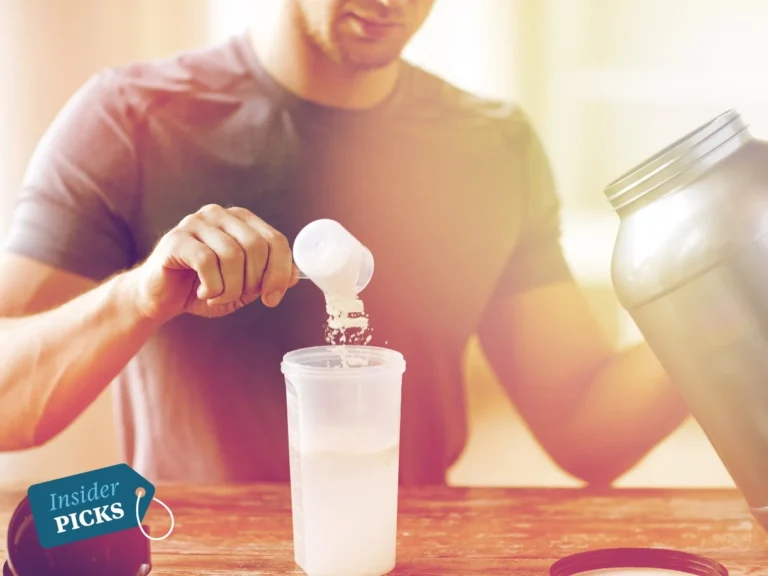When it comes to building muscle, protein is the star of the show. But how much do you really need? Should you eat more protein than your bodyweight in grams? Or is there a sweet spot that optimizes muscle growth without overloading your diet? Let’s break down the science and myths to help you understand how to fuel your fitness journey.
Introduction to Protein and Muscle Building
Why Is Protein Essential for Muscle Growth?
Protein is often called the “building block” of the body, and for good reason. It’s made up of amino acids that repair and build muscle tissue after a workout. Without enough protein, your muscles won’t recover properly, stalling your progress.
The Role of Protein in Recovery and Repair
After intense exercise, your muscles experience tiny tears. Protein helps repair these tears, making them stronger and larger over time. It’s a crucial part of the muscle-building process and why it’s often associated with fitness success.
Factors That Influence Your Protein Requirements
Age and Gender
Protein needs vary by age and gender. Men typically require more protein due to higher muscle mass, while older adults may need additional protein to counteract muscle loss over time.
Activity Level and Workout Intensity
If you’re more active or engage in intense weightlifting sessions, your body will demand higher protein levels for recovery and growth. Sedentary individuals need far less.
Body Weight and Composition
Your weight plays a major role in determining protein needs. Heavier individuals or those with higher lean muscle mass require more protein to maintain and build muscles.
How Much Protein Do You Really Need?
General Guidelines for Muscle Building
The 0.8g/kg Baseline for Sedentary Adults
The average sedentary adult needs about 0.8 grams of protein per kilogram of body weight. However, this is far below what’s required for muscle building.
1.2–2.0g/kg for Active Individuals and Athletes
For those actively trying to build muscle, experts recommend 1.2 to 2.0 grams of protein per kilogram of body weight. This range ensures adequate muscle recovery and growth.
Adjusting Protein Intake for Personal Goals
Weight Loss and Muscle Retention
If you’re cutting calories to lose fat while preserving muscle, protein intake becomes even more critical. Aim for the higher end of the spectrum, around 2.0g/kg.
Bulking and Gaining Muscle Mass
For those in a muscle-building phase, focus on a steady protein intake while maintaining a caloric surplus. This ensures your body has the fuel it needs for growth.
Best Protein Sources for Muscle Building
Animal-Based Protein Sources
Lean Meats, Poultry, and Fish
Chicken, turkey, lean beef, and fish like salmon are excellent protein sources. They’re rich in amino acids and low in fat, making them ideal for muscle building.
Dairy Products and Eggs
Greek yogurt, cottage cheese, and eggs are packed with protein and offer additional nutrients like calcium and healthy fats.
Plant-Based Protein Sources
Legumes, Tofu, and Tempeh
For vegetarians and vegans, legumes like lentils and chickpeas, as well as tofu and tempeh, provide a complete protein profile.
Protein-Rich Grains and Nuts
Quinoa, chia seeds, almonds, and walnuts are great for adding variety to your diet while boosting your protein intake.
Timing and Distribution of Protein Intake
The Importance of Post-Workout Protein
Consuming protein within 30 minutes to two hours after a workout is crucial. This is when your muscles are most receptive to absorbing amino acids for repair.
Spreading Protein Throughout the Day
Instead of eating all your protein in one meal, distribute it evenly across the day. This ensures your muscles receive a constant supply of amino acids.
Common Myths About Protein and Muscle Building
Myth 1: More Protein Equals More Muscle
While protein is essential, consuming excessive amounts won’t lead to unlimited muscle growth. Your body can only process so much protein at a time.
Myth 2: Only Animal Protein Builds Muscle
Plant-based proteins can be just as effective when combined to create complete amino acid profiles. Think quinoa and beans or peanut butter on whole-grain bread.
Myth 3: Timing Doesn’t Matter for Protein Consumption
Timing does matter. Strategic protein intake before and after workouts can maximize your results.
Potential Risks of Excessive Protein Intake
Impact on Kidney Health
Consuming too much protein over a prolonged period can strain your kidneys, especially if you have pre-existing conditions.
Nutritional Imbalances and Caloric Surplus
Focusing too heavily on protein can crowd out other essential nutrients, leading to an imbalanced diet. It can also cause unintentional weight gain if calorie intake exceeds your needs.
Final Thoughts
The Key to Building Muscle with Protein
Protein is a vital part of any muscle-building plan, but balance and strategy are equally important. By understanding your unique needs, choosing high-quality protein sources, and timing your intake effectively, you can optimize your results and achieve your fitness goals.
FAQs
1: Can I build muscle on a plant-based diet?
Yes, plant-based diets can provide sufficient protein for muscle growth when planned properly. Focus on diverse sources like legumes, tofu, and quinoa.
2: Is it necessary to use protein supplements?
While not essential, protein supplements like whey or plant-based powders are convenient for meeting daily protein goals, especially after workouts.
3: How soon after a workout should I eat protein?
Ideally, consume protein within 30 minutes to two hours after exercise to maximize muscle recovery and growth.
4: What’s the maximum amount of protein I can consume in one meal?
Your body can effectively use around 20-40 grams of protein per meal, depending on individual factors like size and activity level.
5: Does age affect how much protein I need for muscle growth?
Yes, older adults may need more protein to counteract muscle loss and support recovery, especially if they’re engaging in resistance training.


